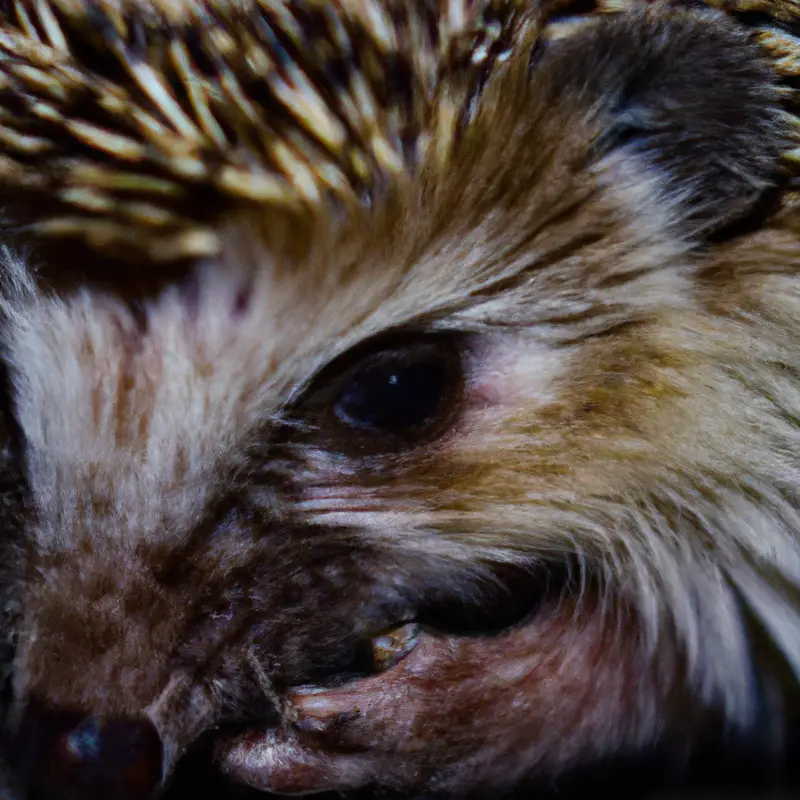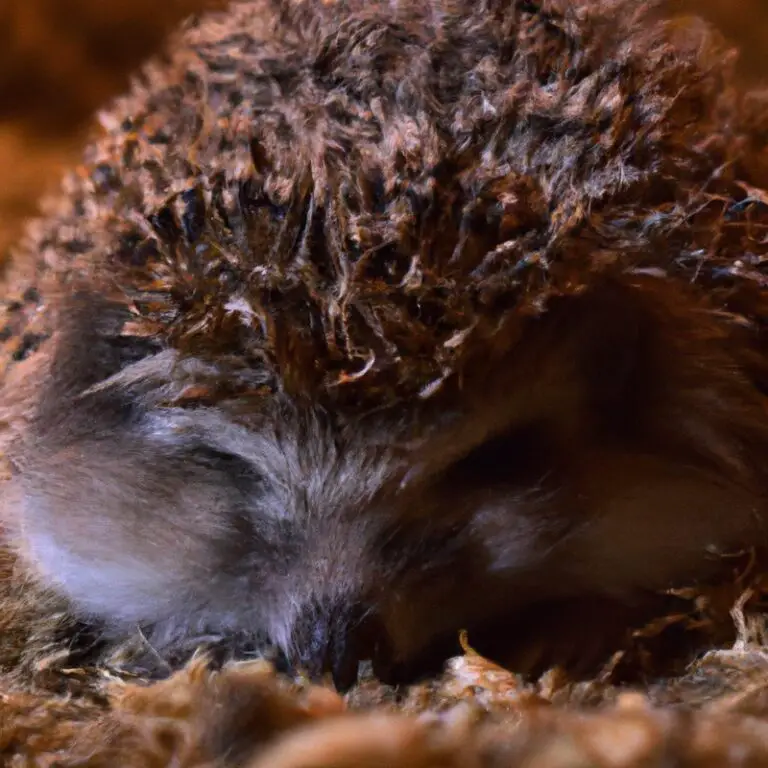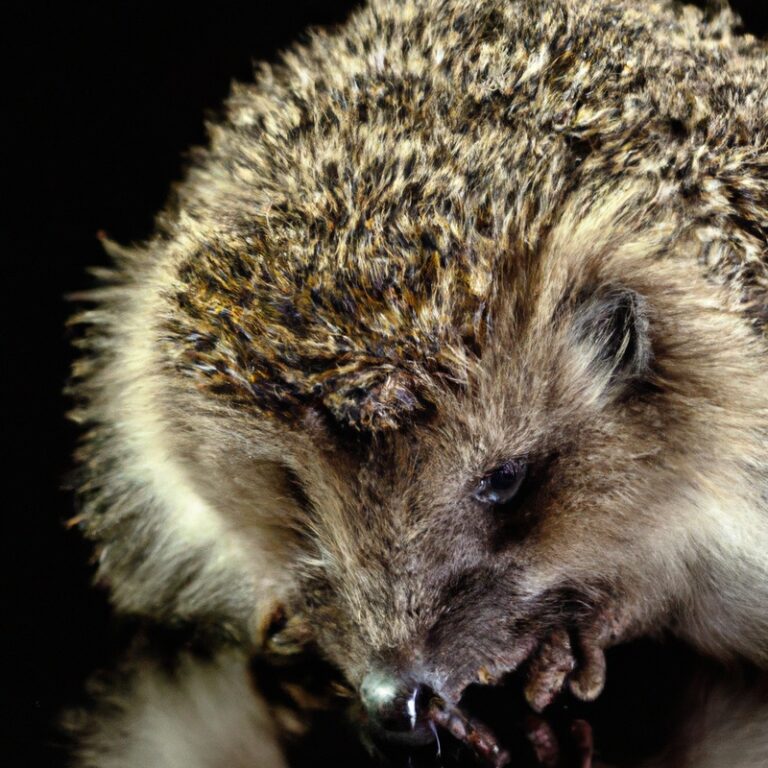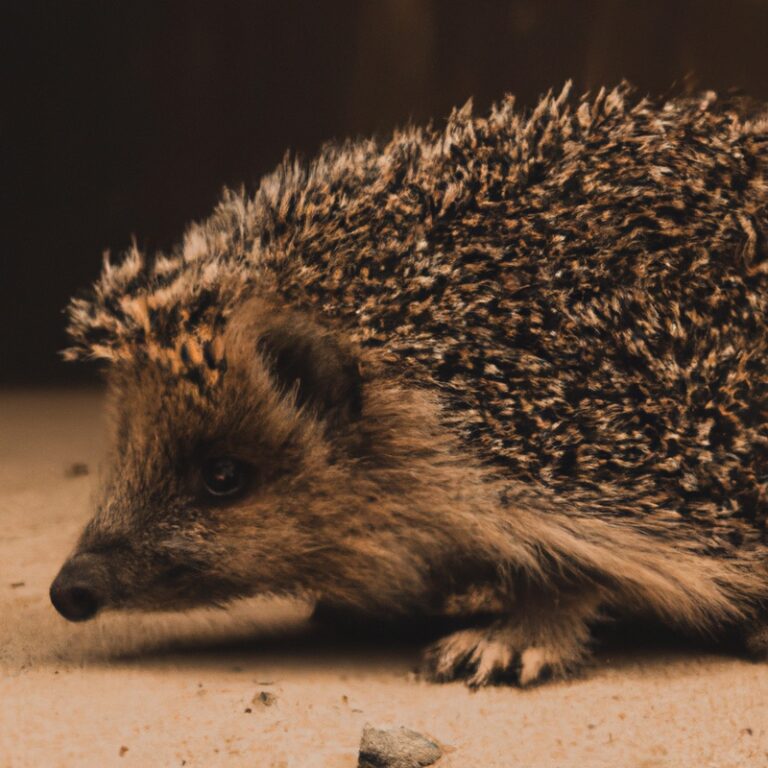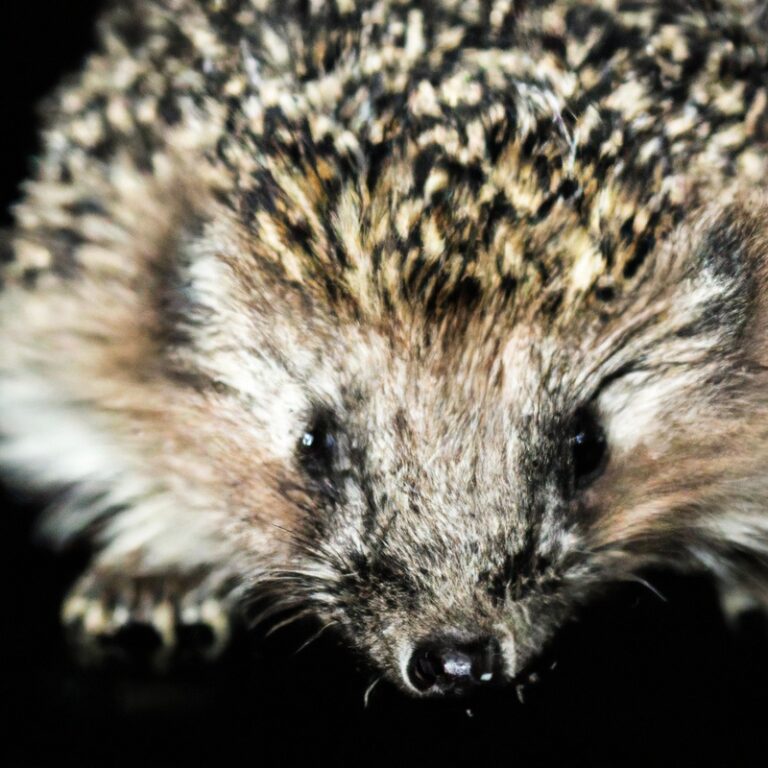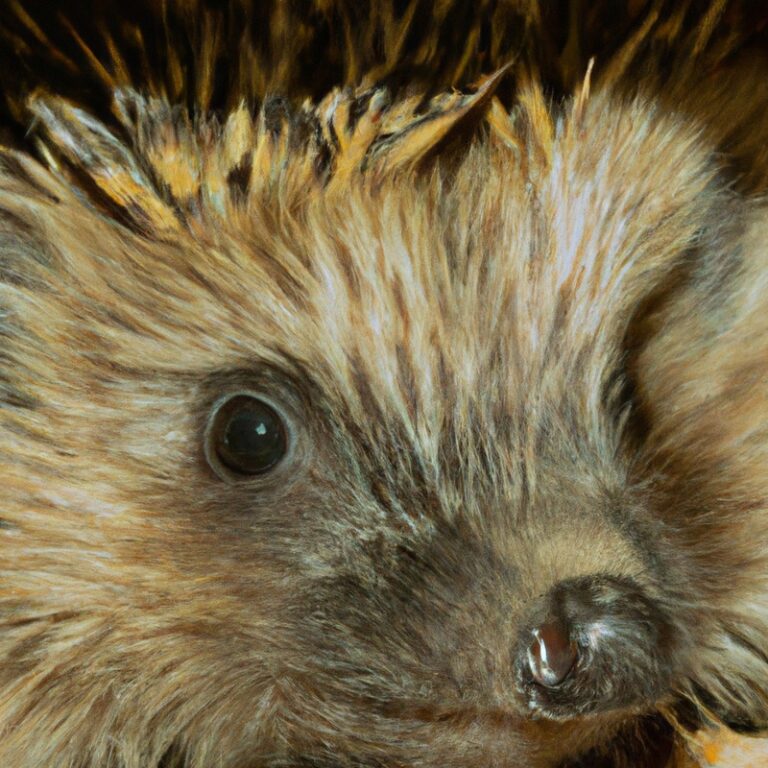What Is The Hedgehog’s Role In Controlling Spider Populations?
Key Takeaways:
- Hedgehogs play a crucial role in controlling spider populations by preying on them.
- Hedgehogs help maintain ecological balance by reducing spider populations and their potential harm.
- The presence of hedgehogs can lead to a decrease in spider population density.
- Hedgehogs contribute to the natural regulation of spider populations in their habitats.
Are you tired of constantly battling spider infestations in your home or garden? Well, have you considered enlisting the help of a spiky little superhero?
Yes, I’m talking about the humble hedgehog.
These adorable creatures not only warm our hearts but also play a vital role in controlling spider populations. In this article, we’ll explore the benefits of hedgehogs in keeping those eight-legged critters at bay.
We’ll dive into fascinating research and studies that reveal just how much spiders are on the hedgehog menu.
We’ll also discover how we can create hedgehog-friendly habitats to invite these natural pest control agents into our lives. Plus, we’ll answer some burning questions about hedgehogs and their impact on the ecosystem.
So, let’s embark on this amazing journey and uncover the secrets behind the hedgehog’s role in controlling spider populations.
| Hedgehog’s Role | Controlling Spider Populations |
|---|---|
| 1. Natural Predation | Hedgehogs prey on spiders and help decrease their populations |
| 2. Habitat Alteration | Hedgehogs create disturbances in spider habitats, making them less suitable for spiders to thrive |
| 3. Competition for Resources | Hedgehogs consume insects that spiders also feed on, creating competition and limiting spider populations |
| 4. Predatory Fear | Spiders may avoid areas where hedgehogs are present to reduce the risk of predation |
Benefits of Hedgehogs in Controlling Spider Populations
Hedgehogs play a vital role in controlling spider populations.
They help decrease spider infestations, provide pest control in agricultural areas, and maintain ecosystem balance.
Decreasing Spider Infestations in Gardens and Homes
To decrease spider infestations in your garden and home, there are a few simple steps you can take.
First, keep your surroundings clean and clutter-free, as this reduces hiding spots for spiders.
Second, seal any cracks or gaps in doors, windows, and walls to prevent spider entry points.
Third, reduce outdoor lighting sources that attract insects, as spiders feed on them.
Finally, consider introducing natural predators like birds or beneficial insects to help control spider populations.
These measures, along with regular cleaning and maintenance, can help decrease spider infestations in your space.
Pest Control in Agricultural Areas
Pest control in agricultural areas is essential for maintaining healthy crops and maximizing yields.
Farmers often use various strategies to manage pests, including integrated pest management (IPM) techniques.
This approach focuses on the use of natural predators, like ladybugs and birds, to control pests, reducing the need for chemical pesticides.
Additionally, crop rotation and the use of resistant varieties can help deter specific pests.
Regular monitoring and early intervention are crucial for effective pest control in agricultural areas.
Impact on Local Biodiversity and Ecosystem Balance
The presence of hedgehogs can have a positive impact on local biodiversity and ecosystem balance.
They are natural predators of small insects, including spiders, which helps to regulate their populations.
This can help maintain a healthier balance between different species in the ecosystem.
Additionally, hedgehogs also contribute to seed dispersal as they travel through various habitats, aiding in the spread of plant species.
Their presence can ultimately contribute to a more diverse and balanced local ecosystem.
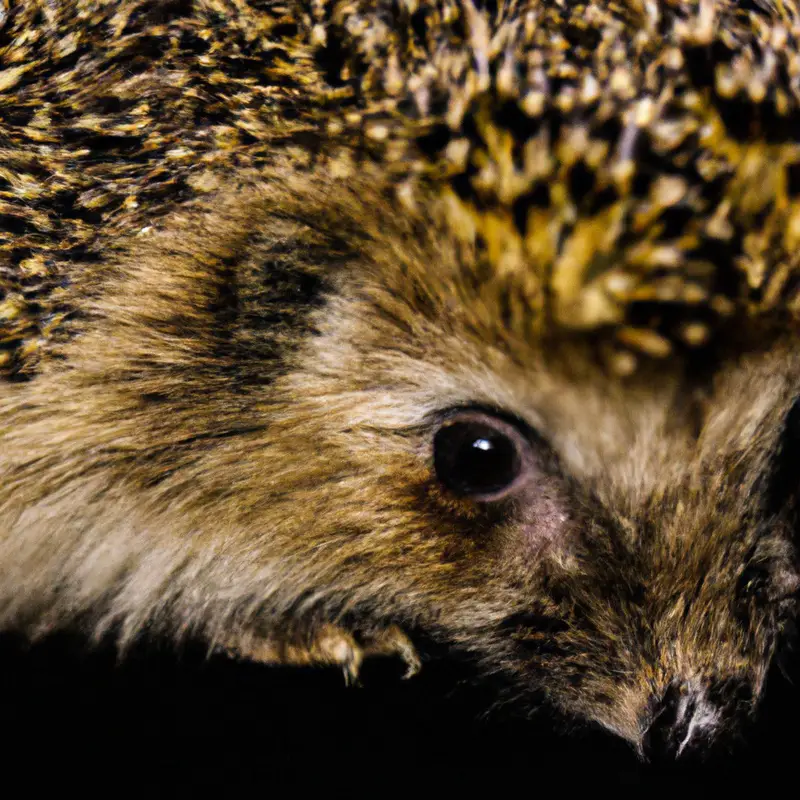
Research and Studies on Hedgehog’s Impact on Spider Populations
Scientific studies explore hedgehog’s effect on spider populations.
Scientific Studies on Hedgehog Diet and Spider Consumption
Scientific studies have shown that hedgehogs play an important role in controlling spider populations through their diet. These studies have found that hedgehogs have a preference for eating spiders and their eggs.
Hedgehogs are able to consume a significant number of spiders, which helps to reduce their population in the ecosystem.
This consumption of spiders by hedgehogs can have a positive impact on maintaining the balance of the ecosystem and controlling spider populations.
Population Monitoring and Ecological Surveys
Population monitoring and ecological surveys are critical in understanding the dynamics of hedgehog populations and their impact on spider populations. These surveys involve conducting field research to gather data on hedgehog distribution, abundance, and behavior.
By studying their diet and habitat preferences, researchers can assess the potential influence hedgehogs have on spider populations.
By regularly conducting these surveys, scientists can track changes over time and assess the effectiveness of conservation efforts. Additionally, these surveys provide valuable insights into the overall health and biodiversity of ecosystems.
Observational Data and Case Studies
Observational data and case studies provide valuable insights into the impact of hedgehogs on spider populations. These studies have shown that hedgehogs play a crucial role in controlling spider numbers in their habitats.
Observations have revealed that hedgehogs actively prey on spiders, effectively reducing their populations.
Case studies have further supported these findings, documenting a decrease in spider abundance in areas where hedgehogs are present. This suggests that hedgehogs can contribute to the regulation of spider populations.
Encouraging Hedgehog Habitats for Spider Control
Creating hedgehog-friendly gardens can help encourage hedgehogs to inhabit your yard, leading to natural spider control.
Creating Hedgehog-Friendly Gardens
To create a hedgehog-friendly garden, there are a few simple steps you can take.
Firstly, make sure there are access points in your fencing or hedges so hedgehogs can come and go freely.
Secondly, avoid using pesticides and chemicals in your garden, as these can be harmful to hedgehogs and their food sources.
Thirdly, provide shelter by leaving patches of wild areas and creating hedgehog houses or piles of leaves and branches.
Lastly, leave out a shallow dish of water and some hedgehog-friendly food, such as cat food, to supplement their diet.
These tips will help attract and support hedgehogs in your garden.

Providing Appropriate Shelter and Nesting Spaces
To provide appropriate shelter and nesting spaces for hedgehogs, you can consider the following:
- Create a hedgehog-friendly garden by leaving areas untouched, like wild corners or piles of leaves and branches, for hedgehogs to hide and build their nests.
- Build hedgehog houses or provide nest boxes. These can be made from wood or bought ready-made, offering a safe and cozy space for hedgehogs to rest and raise their young.
- Avoid the use of toxic chemicals, such as pesticides and slug pellets, as they can harm hedgehogs and their food sources. Opt for natural pest control methods instead.
- Keep your garden safe by checking for hazards like ponds without escape routes or uncovered drains. Hedgehogs can fall into them and struggle to get out.
Remember, by providing appropriate shelter and nesting spaces, you can attract and support hedgehogs in your garden, which can help control spider populations naturally.
Reducing Pesticide Use for a Balanced Ecosystem
Reducing pesticide use is essential for maintaining a balanced ecosystem. Pesticides can have harmful effects on both the environment and the organisms within it.
By minimizing pesticide use, you can promote biodiversity, protect beneficial insects, and prevent the development of pesticide resistance.
Instead, consider alternative methods such as integrated pest management, natural predators, crop rotation, and organic farming practices. By adopting these practices, you can create a healthier and more sustainable environment for all living creatures.
Frequently Asked Questions (FAQs) on Hedgehogs and Spider Control
How many spiders can a hedgehog eat in a day?
A hedgehog can consume hundreds of spiders in a single day.
These small creatures have a voracious appetite for insects, including spiders.
They use their keen sense of smell to locate their prey and then use their sharp teeth to capture and devour them.
This makes hedgehogs excellent natural pest controllers, helping to keep spider populations in check in their respective habitats.
However, it’s essential to remember that the exact number of spiders a hedgehog can eat in a day may vary depending on factors such as the size of the spiders and the hedgehog’s individual appetite.
Do hedgehogs eat poisonous or venomous spiders?
Hedgehogs typically do not eat poisonous or venomous spiders. Their diet primarily consists of insects, small vertebrates, and plant matter.
While they may occasionally encounter a venomous spider, hedgehogs have a natural defense mechanism to protect themselves.
They will roll into a tight ball, exposing only their spiky exterior, which makes it difficult for spiders to harm them. Hedgehogs rely more on their sense of smell and hearing to find food, and they tend to avoid potential threats like venomous spiders.
Can hedgehogs cause imbalances in the ecosystem?
Hedgehogs can potentially cause imbalances in the ecosystem by disrupting natural food chains. While they may help control spider populations, they can also eat beneficial insects, small reptiles, and amphibians.
This can lead to a decline in prey populations and disrupt the balance of the ecosystem.
It’s important to consider the potential impacts of introducing hedgehogs into an ecosystem and to carefully manage their presence to minimize any negative effects.
Final Verdict
Hedgehogs play a significant role in controlling spider populations due to their natural diet and foraging habits. Research and studies have shown that hedgehogs consume a substantial number of spiders, decreasing their infestation in gardens, homes, and agricultural areas.
Encouraging hedgehog habitats through creating hedgehog-friendly gardens and providing appropriate shelter can further enhance their effectiveness as natural pest control.
By reducing the use of pesticides, we can promote a balanced ecosystem that supports both hedgehogs and spiders. Overall, harnessing the hedgehog’s predatory nature is a practical and eco-friendly solution to manage spider populations and maintain biodiversity.

